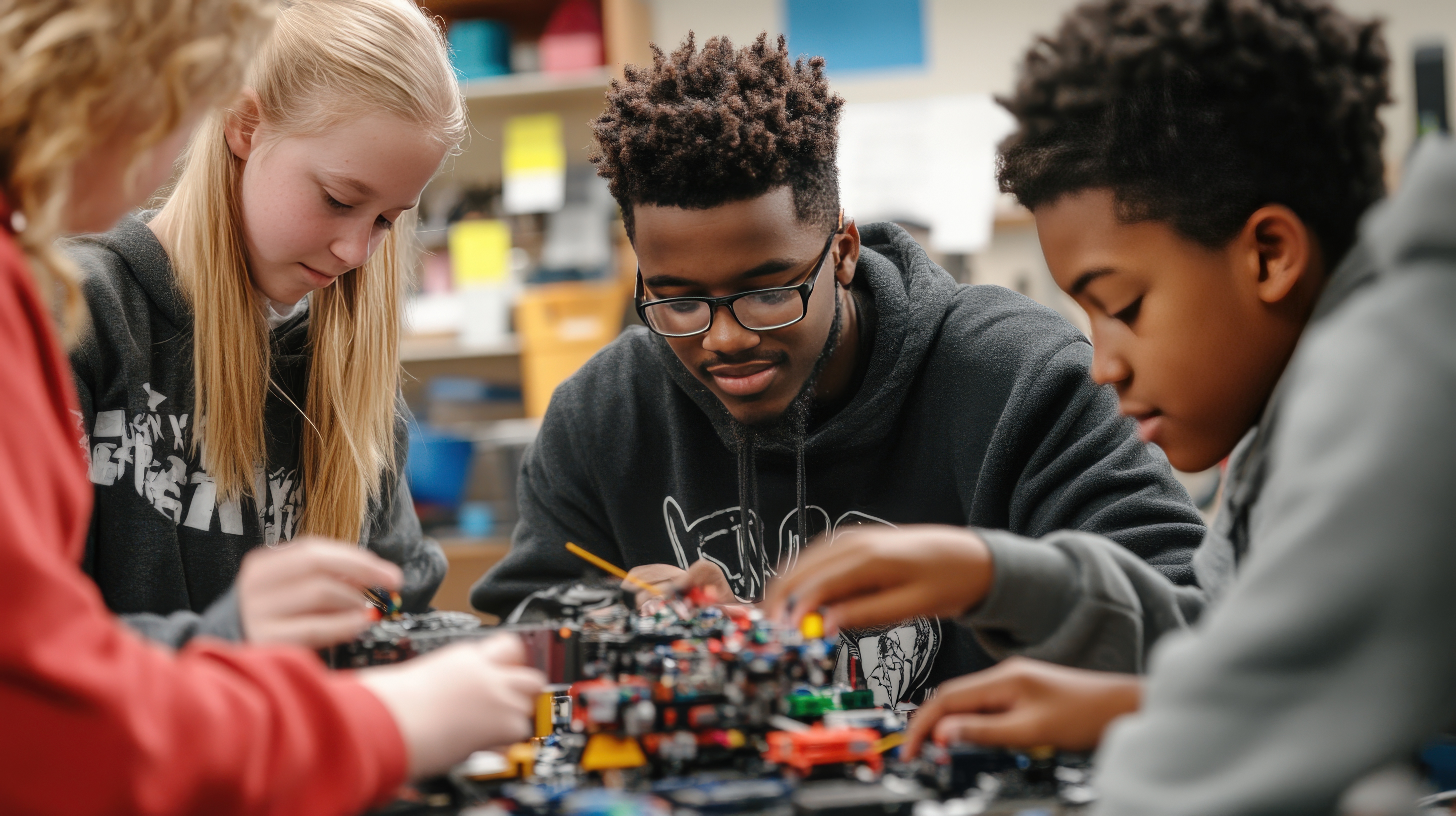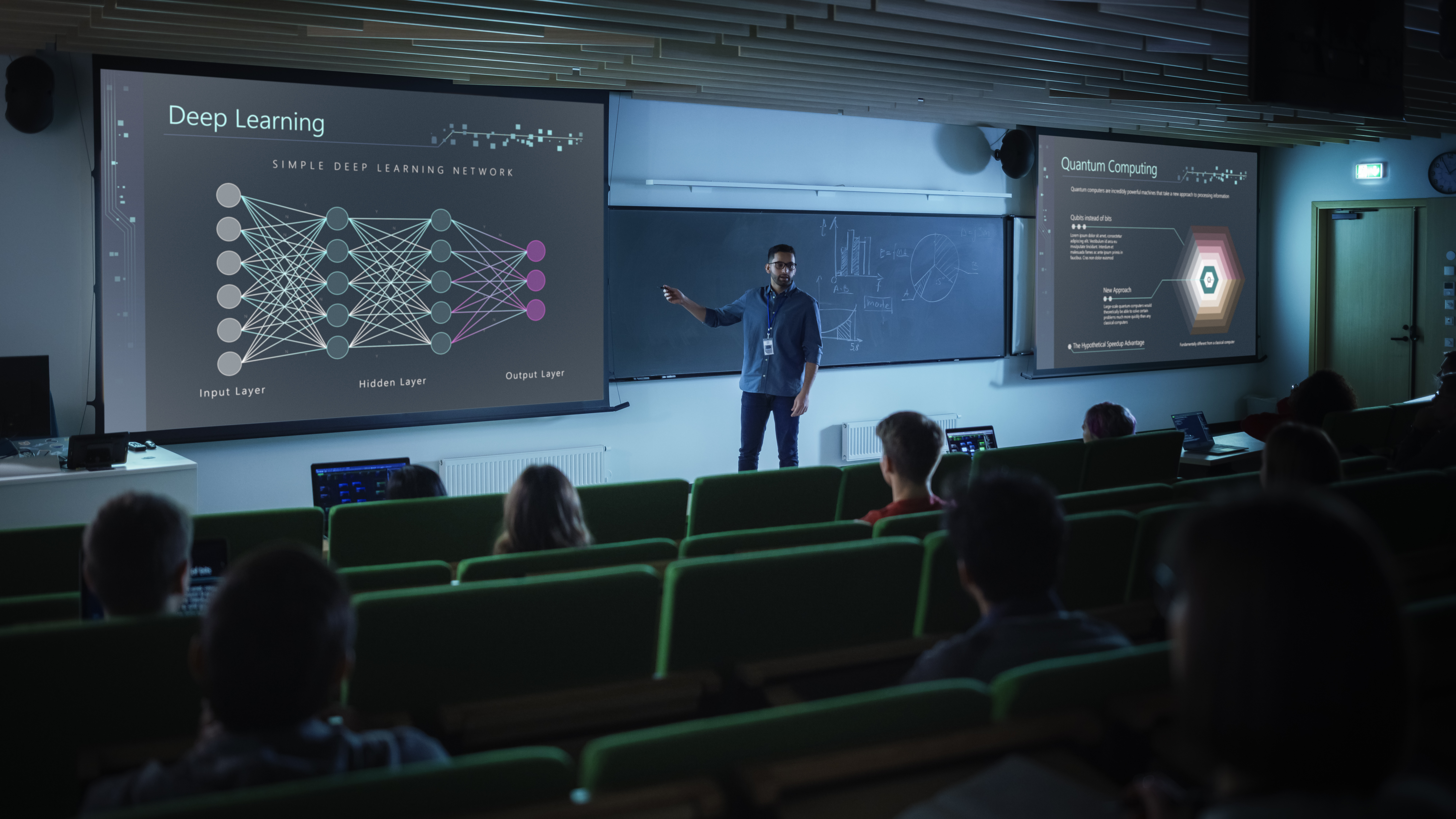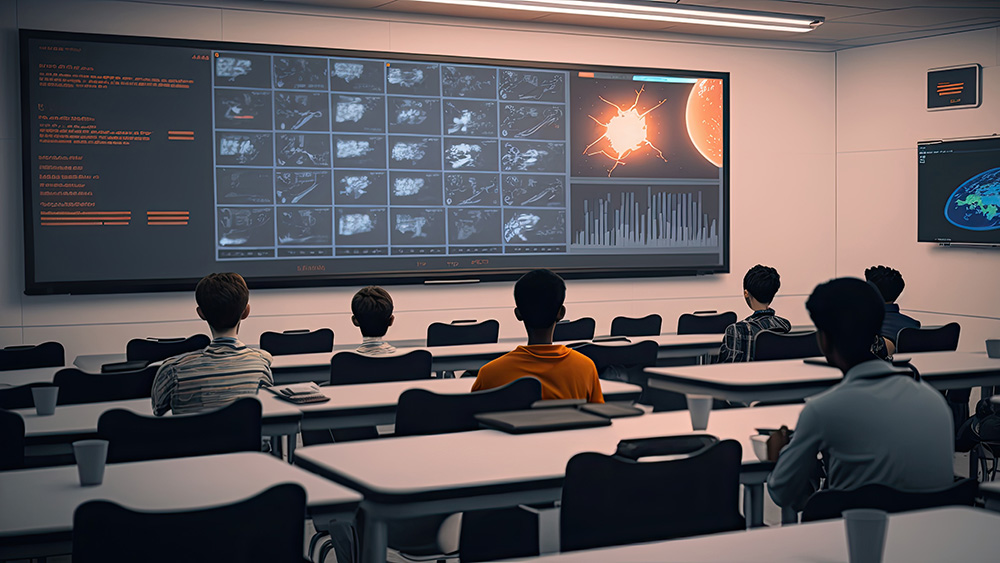article Article Summary
Nov 11, 2025
Embracing AI imperfections as teaching tools significantly enhances pre-service teachers' critical digital literacy and ethical awareness, with 87% reporting heightened ethical consciousness and 78% perceiving stronger critical thinking skills after struc
Embracing AI imperfections as teaching tools significantly enhances pre-service teachers' critical digital literacy and ethical awareness with reporting heightened ethical consciousness and perceiving stronger critical thinking skills after structured engagement with flawed AI outputs Objective The primary goal of this study was to examine how deliberately engaging with the imperfections... continue
article Article Summary
Nov 10, 2025
K-12 educators express strong interest in AI integration but lack adequate training, with 74% citing insufficient professional development as the primary barrier—highlighting an urgent need for role-specific, hands-on AI training programs.
K- educators express strong interest in AI integration but lack adequate training with citing insufficient professional development as the primary barrier mdash highlighting an urgent need for role-specific hands-on AI training programs Objective The primary goal of this study was to conduct a comprehensive needs assessment to evaluate K- educators'... continue
article Article Summary
Oct 28, 2025
AI use in K–12 education is increasing rapidly, but current tools rely heavily on text interaction and largely fail to support students with disabilities and diverse learning needs.
AI use in K ndash education is increasing rapidly but current tools rely heavily on text interaction and largely fail to support students with disabilities and diverse learning needs Objective The purpose of this study was to examine how AI is currently being integrated into K ndash education including the... continue
article Article Summary
Oct 27, 2025
AI-enabled personalized STEM education in K–12 classrooms significantly improves student learning outcomes, especially when supported by AR/VR technologies and collaborative, teacher-guided learning environments.
AI-enabled personalized STEM education in K ndash classrooms significantly improves student learning outcomes especially when supported by AR VR technologies and collaborative teacher-guided learning environments Objective The study aimed to determine the overall effectiveness of AI-powered personalized learning in K ndash STEM education and to identify which conditions mdash such... continue
article Article Summary
Oct 24, 2025
An AI-driven predictive model using XGBoost with L2 regularization, SMOTER, and Active Learning successfully predicts optimal Mathematics Education Technology (MET) usage duration, with model-guided implementation significantly outperforming traditional m
An AI-driven predictive model using XGBoost with L regularization SMOTER and Active Learning successfully predicts optimal Mathematics Education Technology MET usage duration with model-guided implementation significantly outperforming traditional methods in middle school mathematics instruction Objective The primary goal of this study was to develop and validate an AI-based predictive model... continue
article Article Summary
Oct 23, 2025
An 18-hour AIPACK training model significantly improves AI knowledge, pedagogical skills, and content integration capabilities among both inservice and preservice non-STEM elementary teachers, with no significant performance differences between the two gr
An -hour AIPACK training model significantly improves AI knowledge pedagogical skills and content integration capabilities among both inservice and preservice non-STEM elementary teachers with no significant performance differences between the two groups Objective The main goal of this study was to develop and evaluate a nationwide teacher training model designed... continue
article Article Summary
Oct 22, 2025
The increased adoption of artificial intelligence in K-12 schools is directly correlated with heightened risks to students, including data breaches, tech-enabled harassment, AI system failures, and troubling student-technology interactions, despite the te
The increased adoption of artificial intelligence in K- schools is directly correlated with heightened risks to students including data breaches tech-enabled harassment AI system failures and troubling student-technology interactions despite the technology's potential educational benefits Objective The primary goal of this study is to examine the current status of artificial... continue
article Article Summary
Oct 21, 2025
Combining structured planning templates with closed artificial intelligence systems can transform standards-aligned instructional planning for English learners, significantly reducing educators' time spent on administrative tasks while enabling more focus
Combining structured planning templates with closed artificial intelligence systems can transform standards-aligned instructional planning for English learners significantly reducing educators' time spent on administrative tasks while enabling more focused collaborative instructional design that addresses both early literacy and disciplinary literacy needs Objective The primary goal of this study is to... continue
article Article Summary
Oct 19, 2025
Male high school students demonstrated significantly higher scores in Determination and Exploration dimensions of AI attitudes compared to female students, with moderate and small effect sizes respectively, while no gender differences emerged in Collabora
Male high school students demonstrated significantly higher scores in Determination and Exploration dimensions of AI attitudes compared to female students with moderate and small effect sizes respectively while no gender differences emerged in Collaboration indicating that gender-responsive AI education strategies must specifically address agentic and exploratory dimensions to create equitable... continue
article Article Summary
Oct 18, 2025
Middle school students using AI-enhanced Extended Reality (XR) simulations demonstrated significantly higher engagement, motivation, and perceived learning quality compared to students using XR with traditional teacher support alone, while both groups ach
Middle school students using AI-enhanced Extended Reality XR simulations demonstrated significantly higher engagement motivation and perceived learning quality compared to students using XR with traditional teacher support alone while both groups achieved substantial communication skill gains mdash suggesting AI-XR integration prepares students more effectively for workforce demands where employers increasingly... continue
article Article Summary
Oct 17, 2025
While AI holds transformative potential to create equitable K-12 learning environments through personalized instruction and enhanced accessibility, without deliberate ethical design and equitable implementation, it risks deepening educational inequalities
While AI holds transformative potential to create equitable K- learning environments through personalized instruction and enhanced accessibility without deliberate ethical design and equitable implementation it risks deepening educational inequalities through algorithmic bias privacy violations and unequal access to technology Objective This study critically examines AI's dual-edged role in K- education... continue
article Article Summary
Oct 16, 2025
AI Use in Schools Is Quickly Increasing but Guidance Lags Behind
Summary AI Use in Schools Is Quickly Increasing but Guidance Lags Behind Final Statement AI adoption in K- education has surged dramatically with over half of students and teachers now using AI tools for schoolwork yet the absence of clear policies training and guidance has created widespread anxiety about cheating... continue